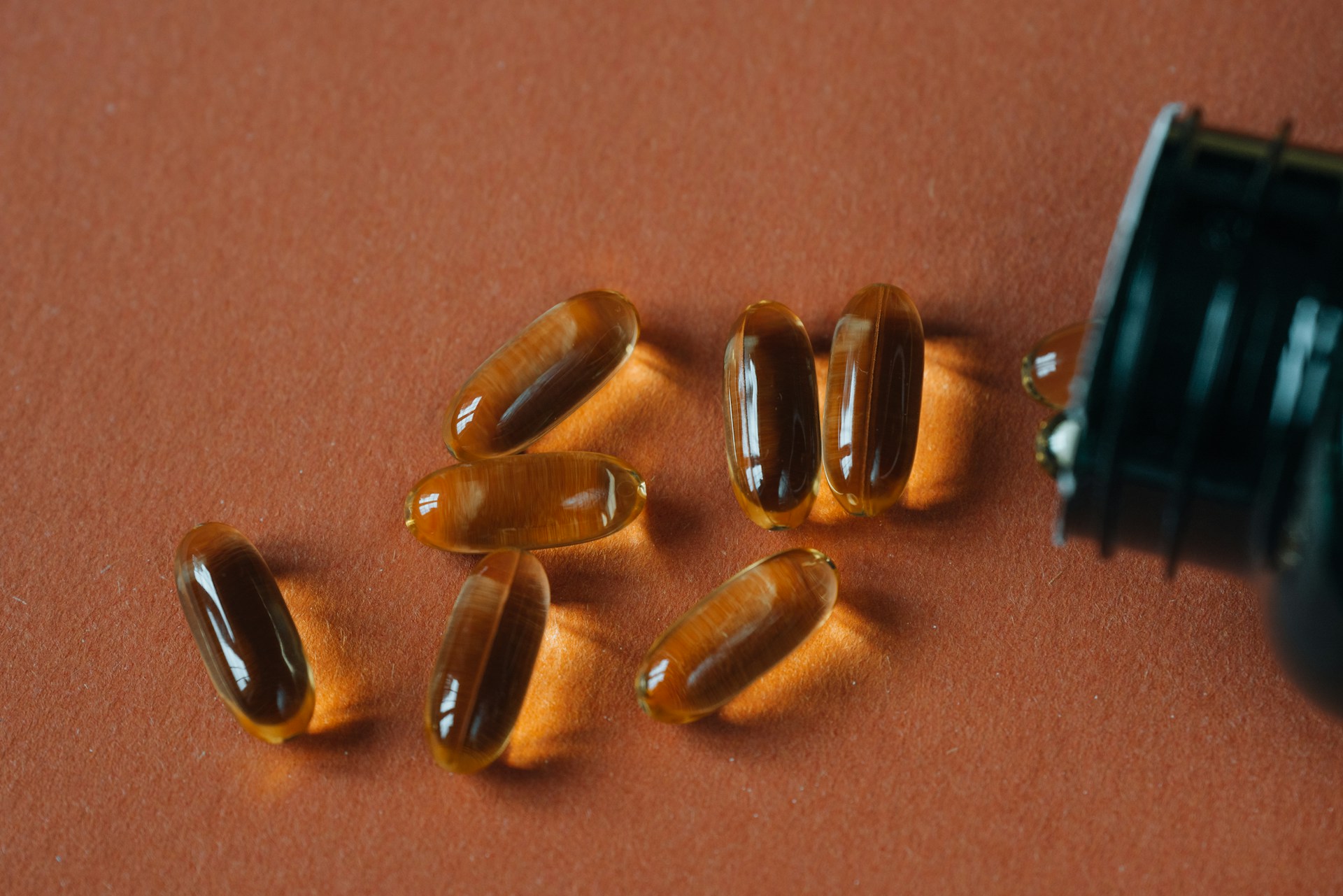Nutrition
Decode Your Groceries: A-Z Guide to Healthier Food Choices

Grocery shopping can sometimes feel like navigating a maze, especially when it comes to understanding the ingredients in the products we consume. With the rise of health buzzwords like “adaptogens” and a myriad of antioxidants and protein sources, it can be challenging to decipher what’s beneficial for our bodies. To make your grocery shopping experience less complicated, we’ve compiled an A-Z guide of ingredients to help you make informed, healthy food choices.
This guide is based on extensive research, consultations with our medical team, and feedback from our readers about the lesser-known ingredients they wish to understand better. We’ve also noted the evidence behind each ingredient’s health benefits, whether confirmed, mixed, emerging, or limited in scope. Additionally, we’ve highlighted when a specific additive is recognized as safe (GRAS) by the United States Food and Drug Administration (FDA).
For instance, some fruits have been used for centuries by Indigenous peoples to treat various ailments. They are rich in vitamin C, antioxidants, and fiber. However, larger-scale studies are required to support claims that these fruits can help treat colds and the flu.
Edible gold is primarily used for aesthetic purposes, lightly brushed over desserts to give them a golden look. However, it’s important to note that people with a gold allergy may have a reaction when consuming this ingredient.
Leafy greens like endive are packed with antioxidants that may lower the growth of cancer cells. However, more research on human subjects is needed. Similarly, certain types of mushrooms are rich in fiber and B vitamins. Some research suggests these mushrooms can reduce the growth and spread of cancer cells, improve heart and brain health, and bolster immunity. However, more research is needed, especially on human participants.
Fennel, an herb and medicinal plant, is nutritious and contains vitamin C, calcium, magnesium, potassium, and manganese, some of which are known to support heart health. However, research about its ability to curb appetite is mixed, and purported anti-cancer benefits have not been observed in humans.
Ferrous gluconate is commonly prescribed in supplement form to aid in anemia treatment, but you may also see it on an ingredient list for cereals, infant food, and dairy products. Fish oil, made when fat or oil is extracted from fish tissue, may increase heart and eye health, reduce inflammation, and improve mental and cognitive health outcomes.
Freekeh, made from green durum wheat, is a whole grain. Some research indicates that it can assist digestion, heart health, and weight management. However, it contains gluten, which some individuals may need to avoid.
Chiles, like jalapenos, contain capsaicin, a bioactive plant that some research indicates might help relieve pain and help with weight loss. However, chili might make irritable bowel syndrome worse temporarily.
Fugu, a Japanese delicacy served as sashimi and nabemono, or Japanese hot pot, can be lethal if not prepared carefully to remove the tetrodotoxin, a venom found in eel and octopus that’s toxic to humans.
Gluten refers to a family of storage proteins with health benefits that naturally occur in certain grains like wheat, barley, and rye. Gluten-free diets have increased in popularity in recent years, and people with celiac disease, non-celiac gluten sensitivity, and other conditions are advised to avoid gluten entirely. Others should speak with a provider before cutting gluten.
These small, tart red berries are commonly sold powdered or dried and added to juices. More research is needed to confirm benefits, including better immune function and eye health.
Guar gum is an additive commonly found in processed foods like salad dressing and yogurt to thicken and bind them. It is low-calorie and high in soluble fiber, so it may help with blood sugar and cholesterol control. The FDA considers it safe in specific amounts, but too much can trigger digestive issues like bloat and gas.
Gram flour, also known as chickpea or besan flour, has been a popular ingredient in Indian recipes for hundreds of years. It’s made with chickpeas and has a mild and nutty taste. It contains antioxidants that can help combat free radical damage. When used in processed food, it may lower the amount of a potential carcinogen known as acrylamide. Chickpea flour has fewer calories and less of an impact on blood sugar than wheat flour, plus it may be more filling.
Hemp seeds are the small, whitish seeds of the hemp plant. They only have small traces of THC, the compound in cannabis that triggers a “high.” They’re loaded with healthy fats, protein, vitamin E, magnesium, calcium, iron, and zinc and can be pressed into hemp oil. They may help with heart disease risk, skin disorder treatment, and digestion and serve as a good source of plant-based protein.
High-fructose corn syrup is an artificial sweetener. It’s been linked to conditions including obesity, diabetes, and heart disease. Scientists and healthcare providers typically recommend limiting or avoiding this sweetener.
Hops are female flowers from the hop plant Humulus lupulus and are most commonly found in beer. Research indicates hops may have a sedative effect. They may also help with menopause symptom relief and obesity, but more human-centered data is needed.
Inulin is found naturally in foods like asparagus, leeks, bananas, onions, and wheat. It’s a type of prebiotic fiber that may help reduce blood pressure, and can aid in blood sugar management. It’s generally considered safe. People, particularly those who are pregnant, should discuss taking supplements with their providers.
Quinoa, a gluten-free seed often mistaken for a grain, was hailed as a sacred food by the Inca people hundreds of years ago. Today, it’s lauded for its nutrient contents like fiber, protein, folate, and magnesium, making it useful for weight management and gut health. It boasts flavonoids, including quercetin and kaempferol, which can have anti-inflammatory properties.
Turmeric is a spice used in curry that gives it its yellow color. It’s also become a popular dietary supplement. It contains curcumin, a substance with anti-inflammatory and antioxidant properties. Most studies used turmeric extracts with large amounts of curcumin, and more research is needed.
This guide is by no means exhaustive. For a more comprehensive list of food additives, we recommend visiting the FDA’s website. Armed with this knowledge, you can confidently navigate the grocery store aisles and make informed decisions about the food you consume.
Let us know what you think, please share your thoughts in the comments below.

Nutrition
Urgent Alert: Major Recall on Popular Herbal Supplements Due to Undisclosed Drug Risks

People across the United States often take supplements to boost their health, but it’s crucial to remember that the U.S. Food and Drug Administration (FDA) does not give pre-market approval for dietary supplements. Consequently, if safety issues surface, they typically arise after consumers have already had the chance to purchase and use the products. Currently, this situation is unfolding as two separate supplements are being recalled due to undisclosed drug ingredients.
The FDA recently disclosed a company announcement regarding the first of these supplement recalls. The announcement, made on July 15, concerns a voluntary recall by SoloVital.com, a California-based company, of all batches of its Umary Acido Hialuronica (Hyaluronic Acid) supplements. This product, promoted and sold for pain relief, is distributed nationwide via the company’s online store.
“The recall was ordered after an FDA laboratory analysis confirmed that the Umary supplements were tainted with two hidden drug ingredients: diclofenac and omeprazole,” according to the recall notice.
“Products containing diclofenac and omeprazole cannot be marketed as dietary supplements.”
Diclofenac is a non-steroidal anti-inflammatory drug (NSAID). It can “cause increased risk of cardiovascular events, such as heart attack and stroke, as well as serious gastrointestinal damage, including bleeding, ulceration, and fatal perforation of the stomach and intestines,” warns the FDA. There may also be harmful interactions with other medications, particularly if consumers use multiple products containing NSAIDs.
On the other hand, omeprazole is a proton pump inhibitor (PPI) typically used to treat stomach acid-related disorders. However, it “may cause serious skin reactions, abdominal pain, diarrhea, nausea, and headache,” according to the FDA. This surreptitious ingredient can potentially camouflage stomach problems and may negatively interact with other medications.
SoloVital is currently contacting its customers via email to arrange product returns. In the meantime, consumers who have the affected Umary supplements are being strongly advised to cease usage and return them to their original place of purchase.
Yet, there’s a second supplement of concern that might be in your household. Following closely on the heels of the Umary recall, the FDA released another company announcement about another supplement recall on July 16. This one concerns the voluntary recall of some Infla-650 Herbal Dietary Supplement Capsules by Guru Inc., a Georgia-based company.
These Infla-650 Herbal supplements were also found to contain hidden diclofenac. In addition, they also included undisclosed acetaminophen and phenylbutazone. This poses a significant risk to consumers due to the danger of unintentional acetaminophen overdose, especially if consumers are also taking other products containing acetaminophen.
“Acetaminophen overdose can cause liver damage (hepatoxicity), ranging in severity from abnormalities in liver function to acute liver failure, and even death,” according to the recall notice. Furthermore, the presence of phenylbutazone, an NSAID previously discontinued for human use in the U.S., is concerning due to its risk of causing potentially fatal injuries, specifically bone marrow toxicity.
The recalled Infla-650 supplements, marketed as an herbal dietary supplement for pain relief, were distributed nationwide and sold online. Like SoloVital, Guru Inc. has initiated communication with its distributors and customers for product return. Consumers are urged to stop use and return any recalled Infla-650 supplements to their place of purchase.
Let us know what you think, please share your thoughts in the comments below.
Nutrition
Gastroenterologist’s Top 5 Foods for a Happier, Healthier Gut

The health of our gut is pivotal, playing a significant role in our overall wellbeing by processing food, absorbing necessary nutrients, and expelling toxins. As noted by internal medicine physician William W. Li, MD, “The more diverse your microbiome, the healthier your gut. This translates into lower inflammation and a reduced risk for chronic diseases like heart disease and type 2 diabetes. It can also promote faster healing, a more streamlined metabolism and even better mood.” So, what foods nurture the gut and boost its health? Here are five gut-friendly foods that gastroenterologist Joseph Salhab, DO, incorporates into his daily diet.
Sourdough Bread
Dr. Salhab, an avid baker, champions sourdough bread as a gut-friendly food. “For my gut-friendly breads, I love sourdough,” says Salhab. He explains that sourdough is “lower in gluten and other bloat-causing agents than other breads,” making it a healthier choice for your gut. The fermentation process of sourdough also leads to an increase in prebiotic and probiotic properties, which benefit the gut’s health, per a 2021 report in the journal, Microorganisms.
Kefir Cheese
After toasting a slice of his homemade sourdough bread, Salhab enjoys it with a thin spread of kefir cheese. This cheese is “naturally rich in probiotics,” which are great for gut health. Kefir, a fermented milk-like beverage, boasts several health benefits, including “anti-inflammatory, anti-oxidative, anti-cancer, anti-microbial, anti-diabetic, anti-hypertensive, and anti-hypercholesterolemic effects,” according to a study in the Foods journal.
Greek Yogurt
When he’s not enjoying his sourdough toast, Dr. Salhab starts his day with Greek yogurt as it is a food naturally high in probiotics. He garnishes it with blueberries and raspberries, which he says, “help my gut bacteria thrive and they help with memory and focus.”
Avocados
Dr. Salhab cherishes avocados, a food high in fiber and packed with essential nutrients. As per Johns Hopkins Medicine, avocados promote healthy digestive function due to their potassium content. Plus, avocados are a low-fructose food, which helps to reduce bloating.
Sliced Tomatoes
With his sourdough toast and smashed avocado, Salhab adds slices of tomatoes, a “great prebiotic.” As outlined by Best Life, prebiotics serve as food for the gut’s microflora, differing from probiotics as they remain in the gut. Tomatoes can also lower your risk of heart disease, cancer, and boost immunity, as per Cleveland Clinic.
After discussing these gut-friendly foods, it’s clear that maintaining a healthy gut contributes to our overall health and wellbeing. By incorporating nutritious and diverse foods like sourdough bread, kefir cheese, Greek yogurt, avocados, and tomatoes into your diet, you can support a healthier, more diverse microbiome. As Dr. Salhab demonstrates, these foods can be delicious and provide a variety of other benefits, ranging from improved memory to reduced risk of chronic diseases. So, why not consider including them in your meal plan to help your gut strive?
Let us know what you think, please share your thoughts in the comments below.
Nutrition
Unlock the Secret Perks of Echinacea From Immune Support to Skin Care

Introducing the multifaceted supplement that’s been revered for centuries for its potential health benefits: Echinacea. Once employed as a versatile medicinal herb to fight off diseases like scarlet fever and diphtheria, echinacea is now classified as a dietary supplement meant to enhance your overall well-being, not cure ailments. Many tout echinacea as a formidable immune booster, but the benefits don’t stop there. So, let’s delve into six surprising health benefits that echinacea supplements can provide.
Potential Anti-Inflammatory Properties
“Echinacea’s potential to reduce inflammation in the body is intriguing. It could help with minor skin irritation or sore throats by calming the body’s inflammatory response,” shares Raj Dasgupta, MD, a medical reviewer for NCOA. While research is underway to confirm the extent of these benefits, the initial anecdotal evidence is promising.
Speeding Up Wound Recovery
Echinacea isn’t just potentially beneficial internally, but externally as well. A 2023 study in the Molecules journal revealed echinacea’s antimicrobial and aseptic effects, which can aid in faster wound healing by warding off infections.
“It works by stimulating the immune system to send healing cells to the injured area,” explains Dasgupta. Nonetheless, he emphasizes that further research is needed and that echinacea should not substitute proper medical treatment for wounds.
Dermatological Effects
Your skin might love echinacea, too! A 2010 study identified echinacea purpurea as beneficial for protecting skin from oxidative stress and improving its hydration.
“Studies suggest it may be helpful for chronic conditions like eczema,” Dasgupta adds. Still, a call for more research to confirm this has been echoed.
Immune System Booster
Perhaps the most well-known potential benefit of echinacea is an immune system boost. Despite traditional use, Dasgupta urges caution, saying, “While traditionally used for colds, the evidence for its effectiveness is mixed. Some studies show a slight reduction in cold duration.”
Anxiety Alleviation
Could echinacea play a role in managing anxiety? A 2021 study found anti-anxiety and anti-depressant effects in subjects who took echinacea supplements for six weeks. Chris Mohr, PhD, RD, a fitness and nutrition advisor, explains, “It has potential anti-inflammatory properties, and chronic inflammation is linked to anxiety.” He does stress that it shouldn’t be used as a first-line anxiety treatment, however.
Regulating Blood Sugar Levels
There’s preliminary research suggesting that echinacea might assist blood sugar regulation, although this data is based on animal studies and has not been replicated in humans yet.
“If data do emerge to support the animal studies, this could be beneficial for those with prediabetes or those who need to manage blood sugar as part of a larger health plan,” proposes Mohr.
Echoing what might be the golden rule of dietary supplementation, our health journey is as unique as we are. What works for one may not work for all. So always be sure to consult with a healthcare provider, especially if you have chronic diseases or autoimmune conditions, before incorporating echinacea or any new supplement into your diet. From potentially reducing inflammation to possibly boosting your immune system, the old yet new echinacea might just be the versatile dietary supplement your health routine needs.
Let us know what you think, please share your thoughts in the comments below.
-

 Health10 months ago
Health10 months agoPreventing Falls and Injuries for Seniors
-

 Nutrition6 months ago
Nutrition6 months agoThe Aging Secret of Vitamin D Unveiled
-

 Nutrition10 months ago
Nutrition10 months ago5 AMAZING Dinner Recipes That Are Also HEALTHY
-

 Health2 months ago
Health2 months ago17-Second Neuropathy Solution
-

 Health1 month ago
Health1 month agoOncologist Reveals Top 5 Cancer Prevention Tips You Shouldn’t Ignore
-

 Lifestyle2 months ago
Lifestyle2 months agoSleep Soundly with These 11 Expert-Approved Bedtime Routines
-

 Health7 months ago
Health7 months agoDownsizing Tips: Simplifying Your Lifestyle
-

 Health5 months ago
Health5 months agoBoost Your Heart Health: Simple Tips for Seniors